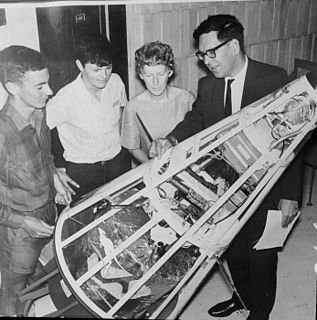A Quote by Freeman Dyson
Science was blamed for all the horrors of World War I, just as it's blamed today for nuclear weapons and quite rightly. I mean World War I was a horrible war and it was mostly the fault of science, so that was in a way a very bad time for science, but on the other hand we were winning all these Nobel Prizes.
Related Quotes
World War Two was a world war in space. It spread from Europe to Japan, to the Soviet Union, etc. World War Two was quite different from World War One which was geographically limited to Europe. But in the case of the Gulf War, we are dealing with a war which is extremely local in space, but global in time, since it is the first 'live' war.
It was Harry Patch, who was the last living World War I veteran; and by veteran I mean someone who actually fought in the war, he didn't just happen to be in the army at that time, in the Great War. And when the Iraq War started, he was interviewed, and they said, well what do you think of this? And he said, in a very sad voice, "Well, that's why my mates died. We thought we were going to end all that sort of thing."
In one sense, I have always felt glad to have had the war [World War II] in my childhood, because, as a result, nothing that has happened in the world since then has ever seemed quite so bad. On the other hand, I never entirely got over my feeling of being cheated when the promised era of peace in a wonderful "post-war world" failed to materialize. I could not understand how, after all that, people could ever even think of fighting again. And I still can't.
A little background: Annabeth used to adventure with Hermes's son Luke. Over time, Annabeth developed a crush on Luke. As Annabeth got older, Luke developed feelings for her, too. Luke turned evil. Hermes blamed Annabeth for not preventing Luke from turning evil. Annabeth blamed Hermes for being a rotten dad and giving Luke the capacity to become evil in the first place. Luke died in war. Hermes and Annabeth blamed each other. Confused? Welcome to my world.



































